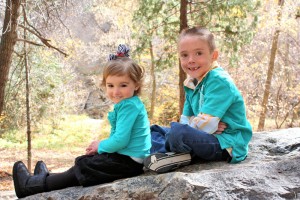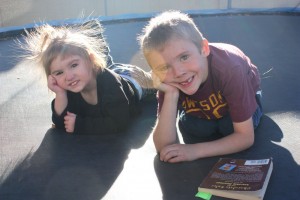Does Your Child Own His or Her Adoption Story?
Our family moved from Idaho to Utah last year. We moved to a house in Utah exactly 233 miles from our home in Idaho. Our nearest family are around 40 miles away. As we have settled into our new community, we’ve realized that we were given a completely blank slate. Nobody knew anything about our family, our children, our their adoptions. Ironically, the anonymity moving afforded also taught so much about us, as parents, sharing our children’s own adoption stories.
About seven months after moving here, my son was spotlighted in his Sunday School Primary group. Earlier in the year, we’d been given a list of questions to either answer about him or to ask him. We promptly filled out the answers about our son, only asking him about a few of the questions, and emailed it back to his Primary leaders. When it was his turn to be spotlighted, the leaders gave us a week notice so we could make arrangements to be there and celebrate also. As all of the children stood up, hoping to be the lucky child acknowledged and celebrated that day, I remember wondering what we’d written about Andy and his answers–written to be shared with many strangers. Immediately, I was nervous.
Had I accidentally shared my son’s adoption story without his permission? Did he mention it in one of his responses? So much had changed since we filled out that form, would it bother him now? At the time of his spotlight, he was five years old and beginning to desire ownership of his adoption story. Since moving, our blank canvas in the community afforded him the opportunity to completely control his story, his ability to blend in with other children, or choose to only tell whomever he wished, whenever he wanted. That ownership and control over his story was important to him. Over the past two months, he had become even more protective of his privacy and own adoption story. He had been having difficulty processing adoption-related emotions after we had located his birth mother and she reaffirmed her desire for a closed adoption. Had I completely outed him in front of peers with whom he attended church, school, soccer tournaments, and would play with at the park? I honestly couldn’t remember if any of my responses or his contained adoption-related information.

The Primary leader continued to give hints and clues about the child being spotlighted, while the children who didn’t share the attribute spoken in the clue or hint sat back down in their chairs. Soon, it was only my toothless little boy with flappy ears standing. Maybe I hadn’t mentioned adoption! He stood there grinning as everybody in the room looked and him and listened to his leader describe his favorite food, favorite subject in school, his pet beta fish, Alvin, and his physical characteristics. Then, my heart sunk as she began speaking of adoption. I immediately remembered the question: “What is one thing that you love about your family?” I had asked him, I wanted to hear his answer. He said he absolutely loved being a big brother. He responded that he had waited four years for a sibling and when we’d finally been able to adopt our daughter, he loved being a big brother. He said he was grateful we were able to participate in a religious ceremony we were able to be sealed together as a family, just like we did after he was adopted. His eyes, wide and nearing panic, found mine. I could read their expression, “Does everybody know I’m adopted now?”
Owning his adoption story is important not only to my son, but to many individuals who were adopted. Adoption is a singular event and many feel it is only one interesting facet of their lives, among thousands of other interesting facets. Adoption is part of who they are, yet it does not singularly define them. As parents with children who came to our family through adoption, we were just so thankful to have our children after a long struggle with infertility and an even longer adoption process and wait, that we were eager to share our adoption story every single chance we were able. We wanted to shout from the rooftops.
When we brought our son home, we chose to make adoption part of our lives and began speaking openly about adoption immediately. That included telling him his adoption story as honestly as possible, in age appropriate language. We spoke of adoption in broad terms, and specifically spoke of his, and later, his sister’s, adoption stories. In an attempt to normalize that event for them, we also sought balance. We definitely didn’t want our children to feel that they were incredibly different than other children or families, simply that adoption was just a special extra part of the story about how they came into our family. We wanted to help them understand that there is more than one way to build a family and all are acceptable. We didn’t want our children to feel and be defined as different than others within our home, we knew they would hear that enough outside of our home. Yet, we wanted to celebrate their place in our home and help them cultivate a positive, real view of adoption. Yet, as I saw my son’s eyes, I knew that his parent’s open sharing from the rooftops of his adoption story needed to evolve. It was time for him to own his story.
Adoptive parents, did your children reach a point where they wanted to own and be the ones to share their adoption story suddenly or was it a gradual process? What age did that occur? I would love to hear your thoughts in the comments.







